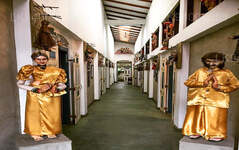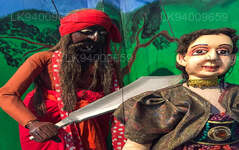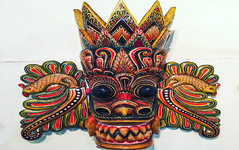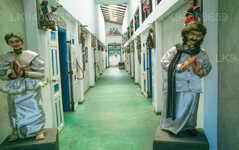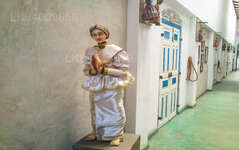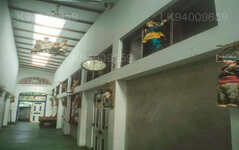Traditional Puppet Art Museum
Close to the back end of the Urban Council Road in Dehiwela, hidden from the bustle of the city lies Sri Lanka’s only Traditional Puppet Arts Museum. It is located on the 176 bus route that leads to the zoo. Less than a decade old, this museum was created as the brainchild of Sri Lankan puppetry lover Sarath Abegunawardana. It was created with the collaboration of the Ministry of Cultural Affairs, Ministry of Tourism Development and Ministry of Education to preserve the culture of traditional arts amongst the Sri Lankan community and bring this art forth to the international level.
The History of Puppetry in Sri Lanka
Sri Lanka has history of puppetry spanning for over several millennia. Remains of puppets and evidence of puppet shows have been traced back to the era of the Anuradhapura and Polonnaruwa Kingdoms. Evidence shows that the art may have been brought by travelers from Rajasthan in India. Researchers believe that the art form was spread to several surrounding countries, and then took their own original twist based on the native cultures. As such, despite the Indian origins, Sri Lanka puppetry is in a class of its own.
Visiting the Museum
The Traditional Puppet Arts Museum museum can be reached by foot from the nearest bus stop or by vehicle. You can walk down the road next to the Dehiwela Urban Council from Galle Road, and turn right at the end towards the zoo. Or you when taking a vehicle come down Galle Road towards Dehiwela, take a turn from the junction towards Kalubowila, then take the first turn to the right. That is the 176 bus route leading to Karagampitiya and the Zoo. The Museum is approximately 150m from there, on your left after passing the Dehiwala Urban Council Road. .
The price for a ticket at the museum is a standard Rs 50 currently. That said, if you wish to be allowed to take photos, your ticket price will be Rs 100. You also have the option of requesting for a puppet show, if you can call a day or two prior to visiting. There are 7 show options to try. Tickets to these shows are priced at Rs 100 per person. However, it is a must to call early if you wish to see a show, as the museum runs with minimum staff otherwise.
On arriving at the museum, you will usually find only a lady manning the ticket counter at the entrance. The rest of the museum will be left for you to enjoy. There will be puppets of various sizes around each corner. However, it’s not creepy or boring as the place is well lit and follows an interesting theme. The museum resembles a palace with various Sri Lankan traditional folktales embodied by puppet art told in various room. The name and description tags of the puppets are in Sinhala, so you may want to request the lady at the counter to provide a translator. A man will come in to do this.
Among the puppets you will find the puppets of kings and jesters, villagers and lords, devils and priests and more. Their clothing and style hail from a time long gone, but maintained with these traditions of drama and puppetry that was once used as the main form of entertainment in the villages and royal cities of Sri Lanka.
At the back is a special room where you can get some unique souvenirs – Sri Lankan Masks. A collection of masks of various sizes and types, from the mask of a famous king to that of a legendary devil from folktales, are arranged here. They have a range of prices, starting from Rs 1800 for the smallest ones. You can purchase them and hang the in your living rooms or on your porch at the entrance.
The Traditional Puppet Museum, while being a recent addition to Colombo’s places to see, has an interesting repertoire of quirky puppets and growing number activities for visitors.

